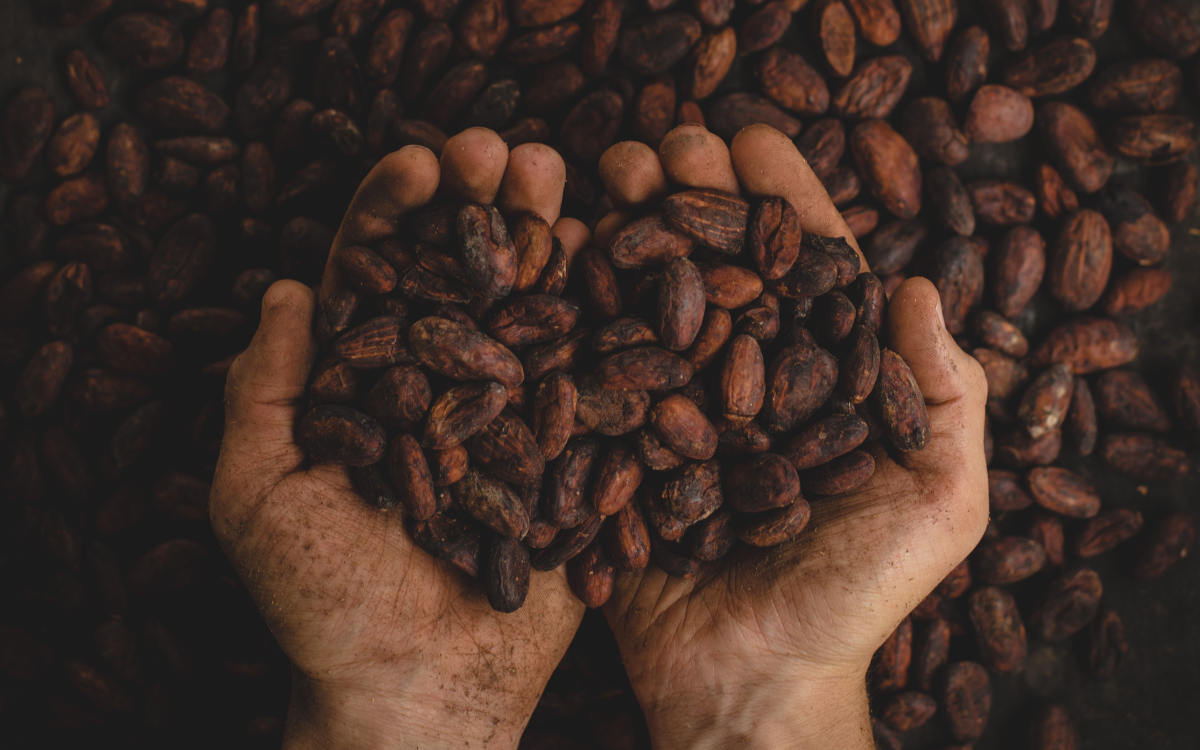Modern Consumption
Africa to this day is still on the losing side in its attempts to reframe its position on modernization. Africa as a whole is a major exporter of many high demand goods needed by the rest of the world. The carve up of Africa by colonial powers still to this day hold economic grip over its former colonies by tying them to the currency of the oppressor. Today, nearly seventy percent of the world’s chocolate comes from the continent of Africa. Out of the seventy percent the countries of Ghana and the Ivory coast produce nearly sixty percent with over two million small-scale farms for the production of cacao. Ghana has been seen as a third world country by many modern nations for a long period of time. It lacks modern infrastructure with many people suffering from basic human necessities. Which is intriguing as the British magazines for women of Ghana portray a different message. There is a set of advertisements for Divine Chocolate which depicts Ghanan women as profitable owners of cacao farms in Ghana. The advertisement depicts these cacao farmers as people who prosper from the production of cacao showing their lifestyle and glamor. Market exploitation has created a false impression of prosperity in Ghana. The cosmopolitan women cacao farmers, the “icons” of Ghanan traditional values, and the sex sells narrative” will prove if this is indeed the case in Ghana.
The cosmopolitan Ghanan women who own cacao farms in an attempt in Media to push a positive light onto the people who work on the cacao farms, overlooking the aspects of mass exploitation and covering this with fashion.Much of postcolonial literature still depicts nations like Ghana as primitive, uncivilized, and underdeveloped. This is their attempt to change this narrative by the presentation of the cosmopolitan magazine portraying the women of Ghana. They portray the women as traditional benefactors of cacao in the transnational exchange. Although these advertisements offer an opportunity to make immense positive contributions to new depictions of Africa in british pop culture. This still neglects the conditions that are worked in these small scale cacao farms by thousands of ghana workers. In addition, cacao was a product which was moved by empires due to rising independence movements in Latin America threatening the potential profits of the chocolate industry. The colonial powers moved a majority of production of cacao to Africa and where they still to this day exploit thousands of workers, some even as young as nine years old. The women portrayed in the cosmopolitan are supposed to be seen as fashion icons.
The portrayal of Ghanian women with chocolate is supposed to somewhat represent a traditional value among the people of Ghana. The women are seen standing near traditional huts in Ghana by the beach side or somewhere that resembles western interpretation of Africa. The evidence can be seen in the photos of the Divine Cosmopolitan magazines. Chocolate and the icon of Ghana should not be put together in an advertisement as chocolate did not traditionally come from Ghana or Africa in general. The origin is in South America and millions of slaves in the colonies of Britain during the 18th-20th century were forced to produce cacao for low wages which the supply was shipped to the british mainland for production in factories there. There is zero traditional value here and to people who may state that it is now grown there as a permanent fact, it would have grown there if it wasn’t for the scramble for Africa and the Columbian Exchange. This is a clear attempt by the advisertisers to link Ghanian traditional and cultural values to be in connection with chocolate while also selling the sex sales narrative.
There is a clear bias in the advertisements using Ghanian women to portray chocolate with exoticness. It is an attempt by the advertisement to portray a positive portrayal of women’s rights and women empowerment in Ghana, thanks to the British media. It is a narrative to cover up the British wrongdoings in Ghana by portraying the women of Ghana as sole leaders in women’s rights and values. Chocolate manufacturers still hold a tight grip on the unfair production of chocolate and they do not pay the people working on these small farms the wages they deserve.
In conclusion, Ghana to this day is still suffering on a global standard being considered as a third world country. Its resources and manpower is exploited by first world countries like the United States and Britain who’s chocolate conglomerates hold a tight grip over the production of chocolate in the country. Market exploitation has created a false impression of prosperity in Ghana. By researching, the cosmopolitan women cacao farmers, the “icons” of Ghanan traditional values, and the sex sells narrative” has proved this is indeed the case in Ghana.
Bibliography:
Cosmopolitan cocoa farmers: refashioning Africa in Divine Chocolate advertisements
Published by: Taylor & Francis, Ltd
Author(s): Kristy Leissle, Source: Journal of African Cultural Studies, Vol. 24, No. 2 (December 2012), pp. 121-139
.
Stable URL: https://www.jstor.org/stable/42005280


Comments
Post a Comment